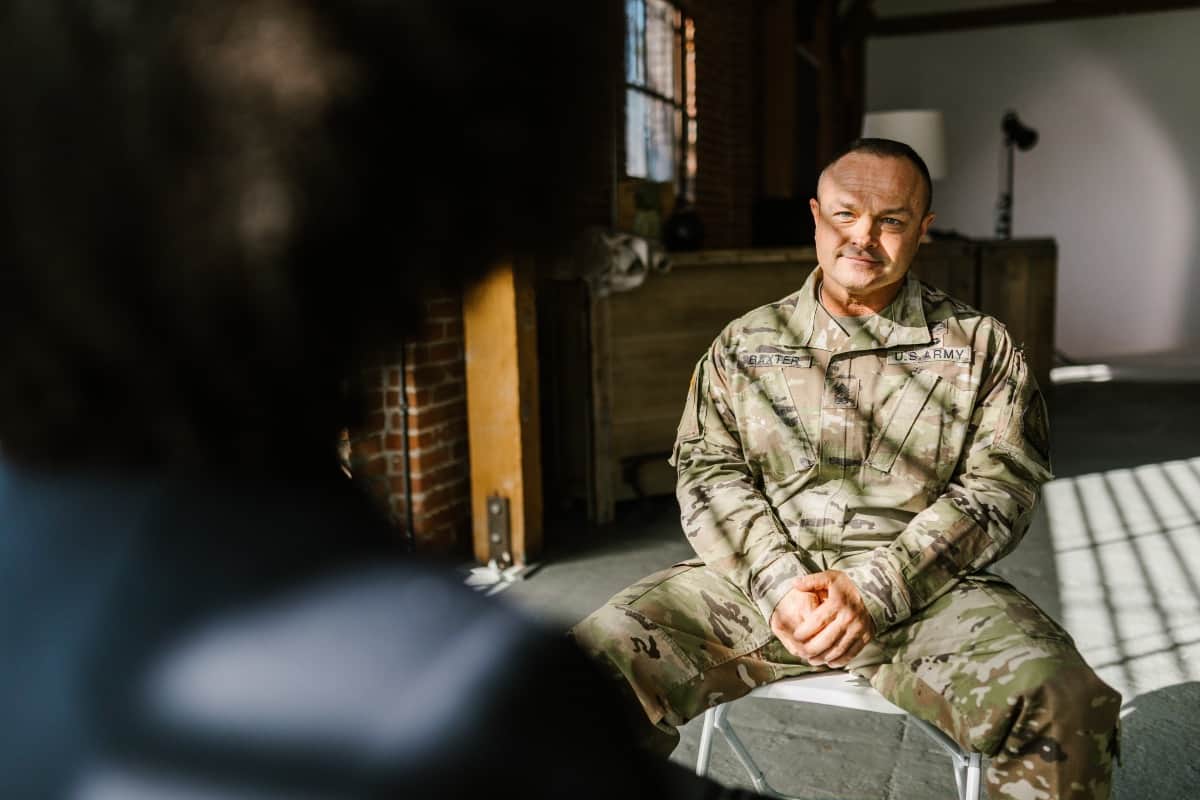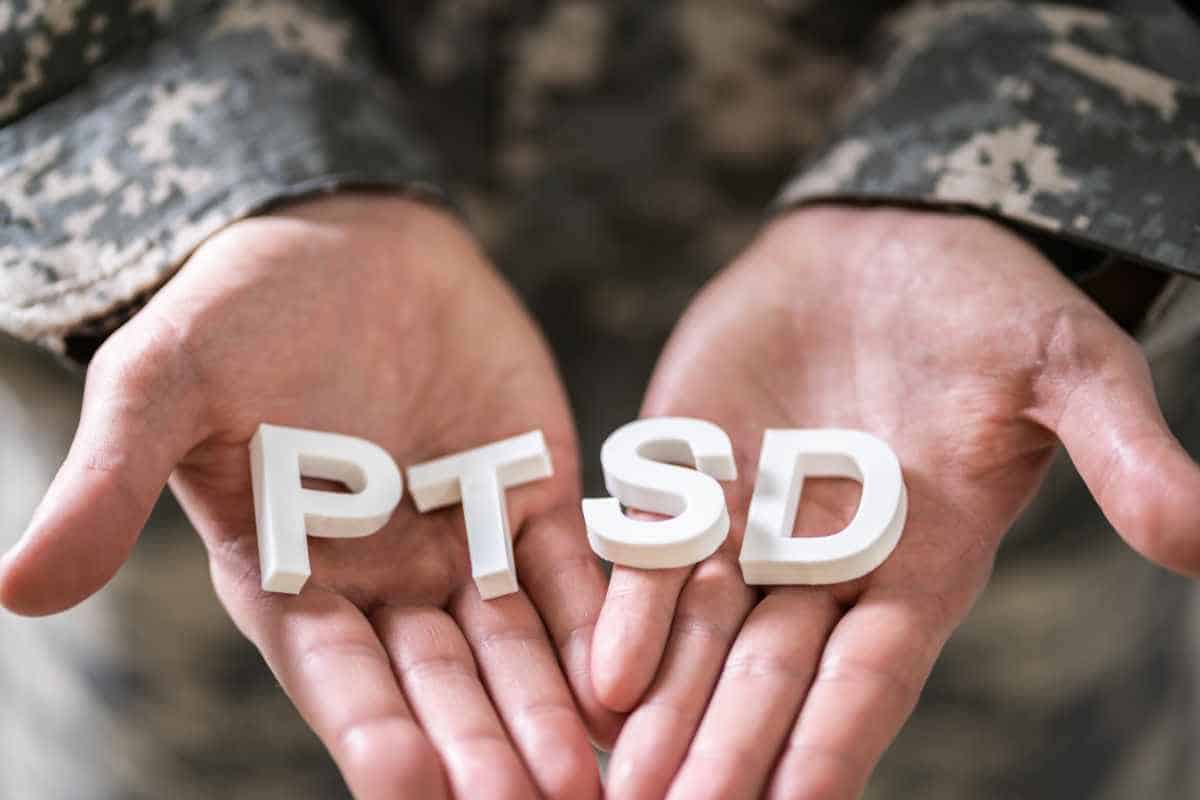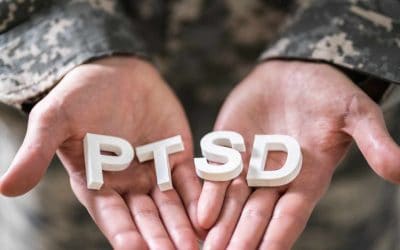
Post-traumatic stress disorder, or PTSD, is a mental health disorder that can occur in people after they have experienced a traumatic event or have been witness to a traumatic event. Any instance that makes you feel unsafe or unstable can have a lasting impact and affect your functioning. Not everyone who experiences the same event will end up with PTSD. The risk factors for developing this disorder vary from person to person.
These life-threatening or unsafe events can be a daily occurrence for people who have served in the military. Because of this, veterans tend to experience higher rates of this disorder than other populations. Being in combat, witnessing comrades pass, or being physically assaulted are all high-stress situations that can lead to PTSD.
What Are the Causes of PTSD?
In most cases, this disorder is a response to a traumatic experience. Many factors can affect why and how a person develops PTSD. PTSD is not a one size fits all diagnosis; the events that can trigger this disorder in one person might not affect the next person in the same way.
PTSD can happen to people who experience loss, such as in the case of losing a baby in childbirth or losing a family member. People who have experienced abuse like sexual assault, abuse during their childhood, or in a relationship may also develop PTSD. Marginalized people also experience PTSD after being subject to racism, sexism, or homophobia. Natural causes or unexpected events can also bring about high levels of stress, for example, a car crash, being diagnosed with a terminal illness, or a hurricane that displaces or injures people.
What Do PTSD Symptoms Look Like?
PTSD is a complex mental health disorder, and symptoms can vary from person to person. However, there are typically four categories of PTSD symptoms:
- Intrusive memories or thoughts
- Negative mood changes
- Avoidance
- Changes in reactivity to physical and emotional stimuli
Some common symptoms of PTSD include:
- Recurring memories of the traumatic event
- Experiencing flashbacks as though the event were still happening
- Nightmares and upsetting dreams
- Hyper-vigilance (keeping your guard up)
- Meltdowns or distress to things that are reminiscent of the event
- Avoiding places or people who bring back memories of the event
- Feelings of negativity toward self
- Strained interpersonal relationships
- Difficulty feeling positive emotions or staying interested in things you once enjoyed
- Being easily startled or frightened, fear of loud noises
- Difficulty sleeping or insomnia
- Short temper or other emotional outbursts
Experiencing even a few of these symptoms after serving can have a serious effect on your life at home. So if you are struggling to return to normal life, reach out for help today.
Common Veteran Traumas
In the military, you experience things that most civilians do not. For people in the military, this can look like losing a comrade, being tortured, or being displaced. However, it does not always include being in active combat.
Military Sexual Trauma
Rape and sexual assault is a known epidemic in the military. Men and women experience this kind of harassment, which often goes underreported, especially in the military. Coercion and unwanted sexual conduct can affect a person for years and leave long-term psychological scars. Along with behavioral changes, this can lead to discomfort or even physical pain when engaging in consensual sexual activities long after the fact.
Survivor’s Guilt
Survivor’s guilt is also something that impacts veterans more often than the civilian population. If you are in active combat, there is a good chance you might see your fellow soldier get seriously injured or even killed. It can be difficult to cope with this, especially if you were able to make it out of the situation with very few injuries. Letting go of the past can be challenging if you feel like taking a different action could have resulted in a different outcome.
Exposure to Violence
Violence can lead to the development of PTSD in veterans as well. There is no way to prepare for some of the things you may have seen during your time in the military, and it is not an easy thing to talk about. However, enlisting does not mean you should carry the burden of the conflict you have experienced in war-struck zones. If you have been involved in a training accident, you may feel like the injuries sustained by you or others were preventable.
Why Is It Important to Seek Treatment for PTSD?
Seeking treatment from a mental health professional for this can help you come to terms with and cope with the event and improve your quality of life. It’s important to distinguish PTSD from other disorders like accute stress disorder because the symptoms can be very similar. Effective treatment methods include cognitive-behavioral therapy (CBT) and eye movement desensitization and reprocessing (EMDR). PTSD can affect you for years after the event occurred, but it is never too late to get help.
Serving your country can come with many sacrifices, but your mental health doesn’t have to be one of them. Getting help can be life-changing for someone struggling with PTSD. At Sober Life, we are dedicated to guiding you through your traumas and helping you regain control of your life. We specialize in individualized care, and finding the right path for you is our top priority. With the help of our trustworthy team and our flexible treatment methods, including outpatient, and partial hospitalization options, your life can once again feel full. Your past doesn’t have to define you; heal with us. Call Sober Life today at (619) 542-9542 to start your journey.












